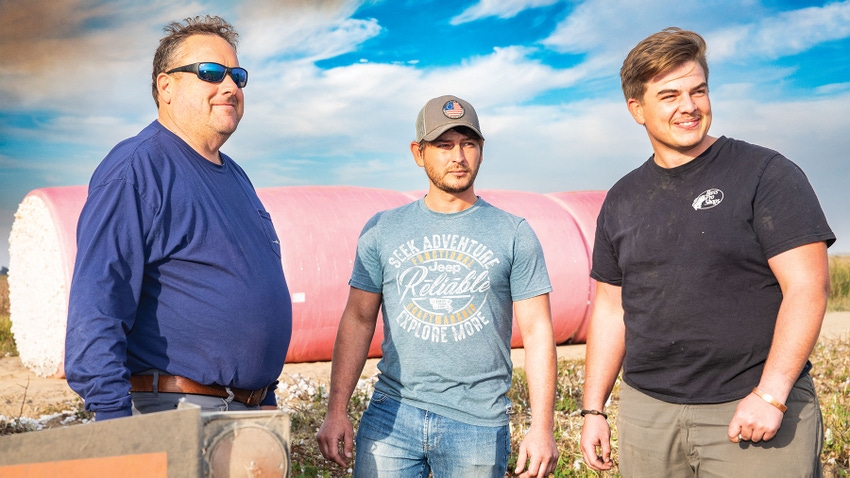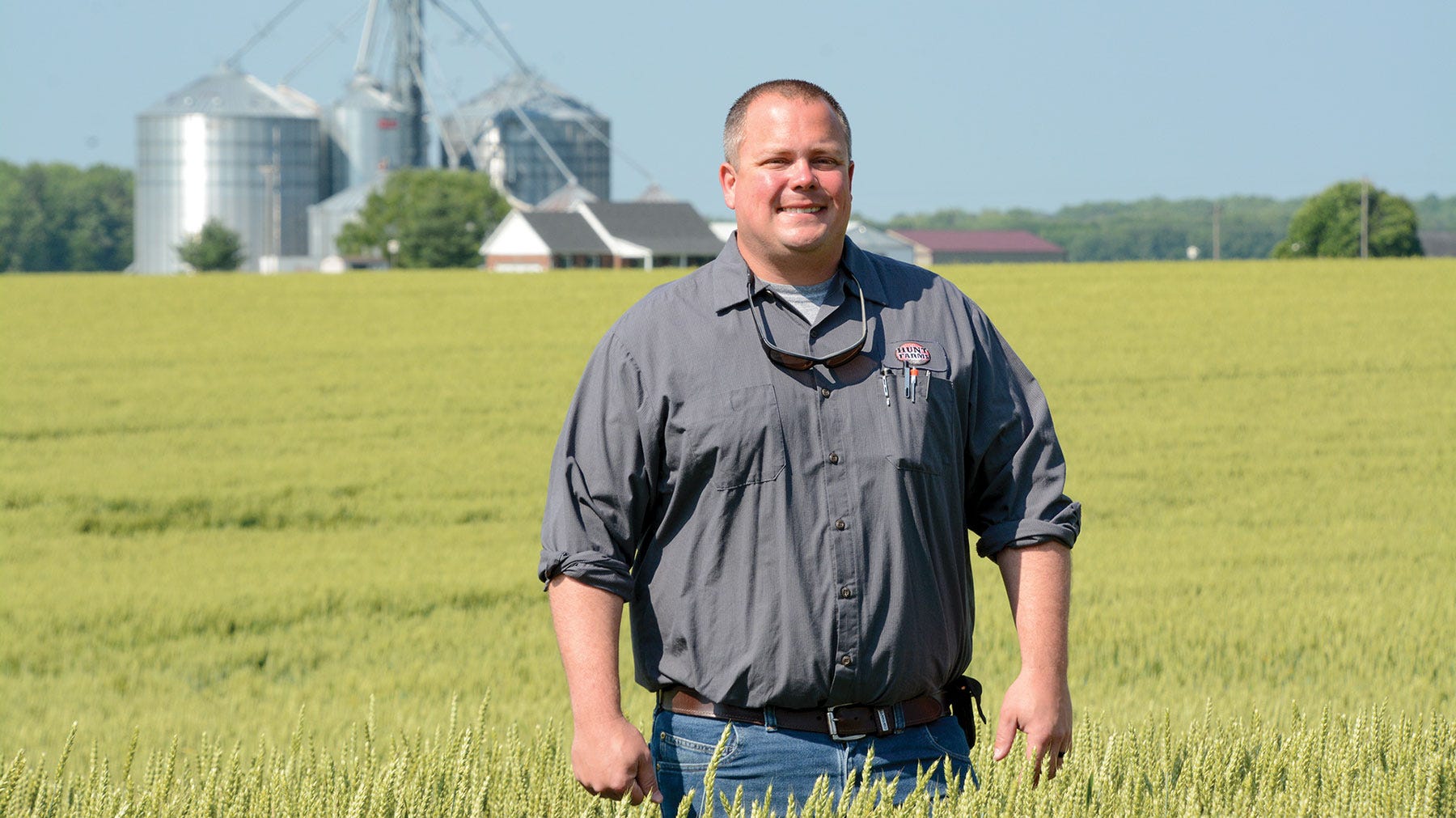
It was 2018, and Missouri Bootheel farmer Joel Brown was struggling to find good help.
He and his brother were scrambling to manage the farm’s irrigated corn, rice, cotton and soybean crops. It was hard to find local people near Gideon who could pass a drug test and show up for work.
“There is no one here to hire,” Brown says. “The biggest demand is truck drivers, and you can’t find those here.”
Brown decided to try something far out — way far out. He called an agent who specialized in hiring foreign workers through the government’s H-2A guest worker program. Four years later, Brown says he’s happy to report his experience has, for the most part, been a success.
He initially hired four South Africans and then expanded to eight. They work for him up to nine months out of the year, based on government restrictions.
“They have been great employees,” Brown says. “My American employees love working with them. Their culture is different from ours, but we couldn’t farm on the scale we do today without them. They know that, and our American employees know it, too.”
Those last statements have been echoed by countless farmers around the country. With ag labor issues only getting worse, more row crop farmers like Brown are taking another look at the federal government’s guest worker program to solve their labor worries.
Which is why Todd Miller has been so busy these days. He’s CEO at Head Honchos, an agency that finds guest workers for U.S. farms through the H-2A program.
“The H-2A program has become a farm-saving resource for farmers in the United States who rely on temporary agricultural labor,” he says. “It addresses the dire seasonal and temporary labor needs that many farmers face, especially during planting, cultivating, harvesting crops, and managing livestock when there’s a peak demand for labor.
“The dedicated and available labor that previous generations had access to is no longer available, and workers with a strong work ethic have evaporated into a fast-changing world.”
Range of nationalities
The majority of workers going to the U.S. come from Mexico and other Spanish-speaking countries such as Guatemala, El Salvador and Honduras. A growing number of workers are being brought in from South Africa because of their ability to speak English and their reputation of being experienced tractor and equipment operators.
“You can get any nationality you want in H-2A, and we chose South Africans because their English is better,” Brown says. “They understand technology. There are lot of large farms in South Africa, and some of these guys are coming off those farms.”
Brown and his brother Tolliver have four full-time U.S. employees. Their guest workers are on nine-month visas; some run from February to November, and others from November to February. That way they can match the right number of workers to how busy they are.
Steps to take
H-2A is a federal program with some complicated regulations
to consider. That’s why if you don’t have the time to do the research, find a lawyer with H-2A experience. Also, make sure you find a reputable hiring agent.
Related: Farm Futures Summit to feature session on farm labor, H-2A
“Reputable agents are listed with the Department of Labor as certified agents,” Miller explains. “That means an agent in good standing, because there is some oversight from the DOL. Ask for references when you review agents.”
Lastly, make sure you know the rules. Brown lists just a few:
Wages. H-2A employers are required to pay their employees special pay rates, which vary by locality. His wages have increased $4 an hour, from $13.37 per hour to $17.54 today. Farther south in Arkansas, wages are lower. The variances are set up by DOL.
Transportation and housing. The employer must provide transportation to and from the job site, and guarantee employment for the number of hours equal to at least 75% of the work time defined in the contract.
The employer also must provide housing, which will be inspected. “You need to provide housing, a way to get to and from work, and access to a grocery store,” Brown says. “You have to have fire extinguishers and first-aid kits in the vehicles
they drive; they have to have houses with screens on all the windows.”
Regulatory traps
“I’m really big on the H-2A program, but the worst thing about it is government regulations,” Brown says. “They’re terrible. The Department of Labor really doesn’t understand farming. They will audit you, check paperwork and talk to your employees. They are a fining agency, so if there is something wrong, you’re getting a fine.”
Using the H-2A program has been smooth sailing for farmer Brandon Hunt of Herndon, Ky., at least as far as the Department of Labor is concerned.
“I’m treating my guys 100% by the book when it comes to regulations,” says Hunt, who has 10 H-2A guest workers on his 10,000-acre corn, soybean, wheat, hemp and tobacco farm in western Kentucky. His challenge is language since all of his workers are from Mexico and only a few are bilingual.
“It’s just as much a struggle for them as it is for me, for them to
tell me what’s going on when I’m not sitting there looking at problem X,” he says. “We overcome that in minor ways, and we use Google translate quite a lot. But our farming operation is not becoming less complex, it’s becoming more complex, so sometimes things get lost in translation.”
Even so, Hunt says he’s tickled to have people on the farm each day, eager to work. “My guys are here to work, and they are teachable,” he says. “They appreciate having work, and that’s not always easy to find these days. It’s hard to find Americans who want to participate in row crop ag production because of the demands. I would hire an American in a heartbeat if I could find one who wants to stay.
“I don’t have to worry that one of these guys is going to quit here in the middle of fall harvest,” Hunt adds. “They are here to complete their job before they go home.”
Hunt is also impressed that his guest workers are so team-oriented.
“We don’t have bickering or social problems,” he says. “They are a cohesive unit. If there’s a task that’s not done correctly, it’s never due to someone unwilling to work. Their culture is to be extremely proud of their work.”

“I don’t have to worry that one of these guys is going to quit here in the middle of fall harvest,” says Kentucky farmer Brandon Hunt. “They are here to complete their job before they go home.” Credit: Mike Wilson
And like Brown in Missouri, Hunt feels a connection with his foreign workers that goes beyond writing out paychecks.
“I think as much of my H-2A guys as anyone who has been on my payroll,” he concludes. “My son goes on the tractor with them. I have the utmost confidence and trust to turn my own child loose with them in the field. That’s how much I think of them.”
About the Author(s)
You May Also Like






